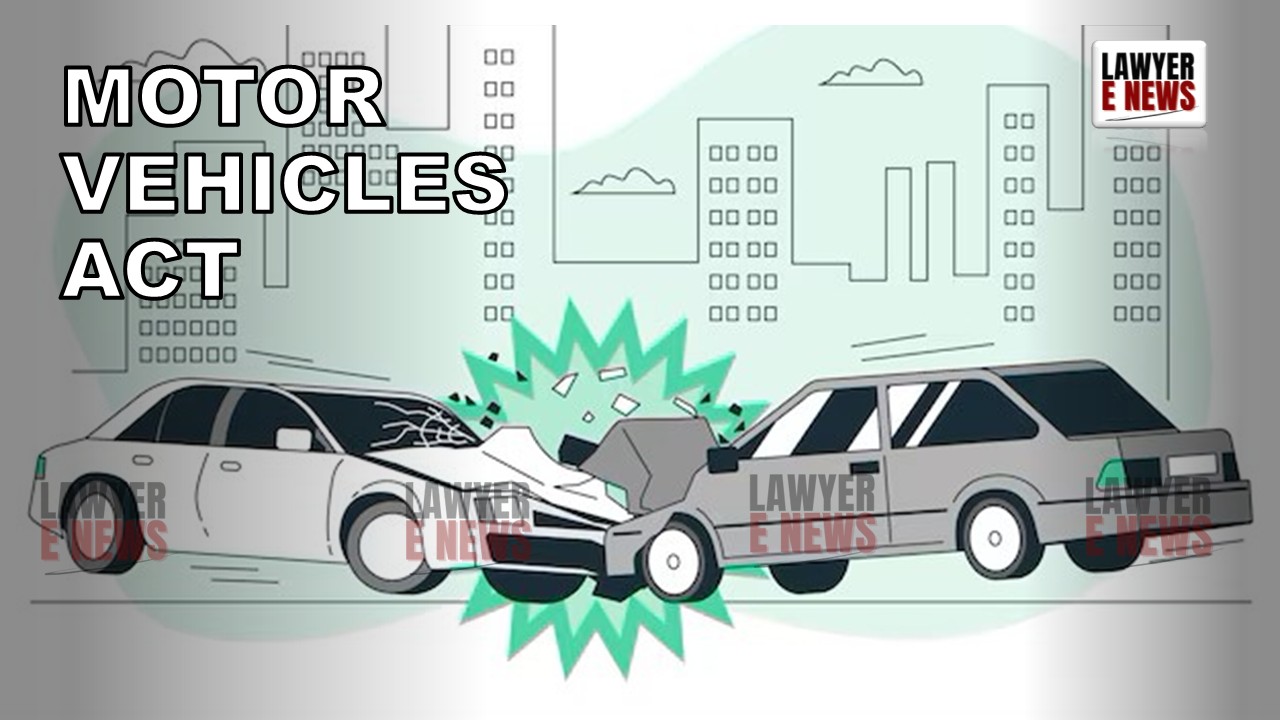-
by Admin
15 February 2026 5:01 PM



On January 20, 2025, the Delhi High Court, presided by Hon’ble Ms. Justice Neena Bansal Krishna, delivered its judgment in Reliance General Insurance Co. Ltd. v. Nand Kumar & Others (MAC.APP. 427/2019). The Court partially allowed the appeal by the insurance company, reducing the compensation awarded by the Motor Accidents Claims Tribunal (MACT) from ₹36,04,000/- to ₹25,12,000/-. The reduction was primarily based on the reassessment of functional disability and its impact on future income. The Court upheld the interest rate at 9% per annum and affirmed the remaining aspects of the award.
The High Court reiterated the settled principle that filing of a chargesheet under Sections 279 and 338 of the IPC constitutes sufficient proof of negligence in motor accident cases. Justice Neena Bansal Krishna observed:
“In National Insurance Co. v. Pushpa Rana [(2009) ACJ 287], it was held that the filing of a chargesheet is sufficient to establish the negligence of the driver of the offending vehicle. Here, the driver failed to challenge the testimony of the injured or appear as a witness, further strengthening the finding of negligence.”
The unchallenged testimony of the injured, the corroborated site plan, and the chargesheet against the driver were sufficient to establish negligence.
The respondent (injured), Nand Kumar, suffered a permanent disability of 76% in the right lower limb due to post-traumatic stiffness of the knee and leg shortening. The Tribunal had assessed his functional disability at 40% based on his difficulty in driving. However, the High Court reduced this to 20% after noting that his salary remained unaffected and that he continued to be employed.
“Considering the fact that the injured continues to draw the same salary from his employer, the functional disability is reassessed as 20% instead of 40%.”
The injured’s monthly salary of ₹32,500 was undisputed, based on salary slips and employer testimony. The Tribunal had awarded ₹21,84,000 for loss of future income based on 40% functional disability. The High Court recalculated this amount at 20% functional disability:
Revised Calculation:
₹3,90,000/- (annual income) × 20% (functional disability) × 14 (multiplier) = ₹10,92,000/-
The insurance company contested the ₹7,70,000/- awarded for medical expenses, arguing that documented bills amounted to only ₹6,75,096/-. However, the High Court upheld the Tribunal's award, reasoning that the injured would likely incur additional expenses due to his 76% permanent disability:
“The Tribunal rightly considered that the medical bills on record only cover hospitalization and immediate expenses, whereas future treatment arising from permanent disability warrants additional compensation.”
The Tribunal had awarded ₹1,00,000 each under the heads of pain and suffering, mental and physical shock, disfiguration, loss of amenities, and loss of life expectancy. The insurance company argued that the amounts were excessive, but the High Court disagreed:
“Given the grievous nature of injuries and permanent disability, the compensation under non-pecuniary heads is reasonable and does not warrant interference.”
The insurance company sought a reduction in the 9% per annum interest awarded by the Tribunal, claiming it was excessive. The High Court dismissed this contention, noting:
“The rate of 9% per annum is consistent with prevailing rates and requires no modification.”
The judgment reiterated the principle from National Insurance Co. v. Pushpa Rana (2009 ACJ 287) that a chargesheet under Sections 279 and 338 IPC serves as prima facie evidence of negligence in motor accident cases.
Relying on Raj Kumar v. Ajay Kumar [(2011) 1 SCC 343], the Court emphasized that functional disability should be linked to its impact on earning capacity. As the injured’s salary remained unaffected, the functional disability was revised to 20%.
The Court highlighted that documented medical bills may not capture the entirety of expenses for permanent disability. Hence, future expenses are a valid consideration in compensation awards.
The High Court recalculated the total compensation as follows:
Head of Compensation Award by Tribunal (₹) Revised by High Court (₹)
Loss of Future Income 21,84,000/- 10,92,000/-
Medical Expenses 7,70,000/- 7,70,000/-
Pain and Suffering 1,00,000/- 1,00,000/-
Mental and Physical Shock 1,00,000/- 1,00,000/-
Disfiguration 1,00,000/- 1,00,000/-
Loss of Amenities and Enjoyment of Life 1,00,000/- 1,00,000/-
Loss of Expectation of Life Span 1,00,000/- 1,00,000/-
Conveyance Charges 50,000/- 50,000/-
Special Diet 50,000/- 50,000/-
Cost of Nursing/Attendant 50,000/- 50,000/-
Total Compensation 36,04,000/- 25,12,000/-
________________________________________
Relief and Directions
1. The High Court reduced the total compensation from ₹36,04,000/- to ₹25,12,000/-.
2. Interest at 9% per annum was upheld on the revised amount.
3. Any excess statutory deposit by the insurance company was ordered to be refunded with interest.
Date of Decision: January 20, 2025
